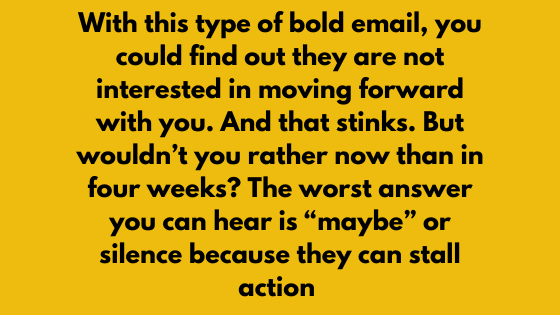
Follow Up With a Recruiter Using Notes
Job searching can often feel like dating. It is important to follow up with a recruiter or “DTR” just like you would when forming a new personal relationship.
You consider your options, figure out how and where you’ll fit in, and decide where best to invest your time and energy, short or long term. In this COVID era, as we go back into the office, it has become a “buyers market”. For every job posted, there are often 100 applicants that apply. This has created a “FOMO” or ‘fear of missing out’ effect for many hiring managers. The fear they are missing out on a “better” applicant, which causes them to scurry and talk to more candidates than normal.
This can drag out the interview process.
You want to be able to quickly define the relationship (DTR) and intentions of the recruiters so that you don’t waste time.
An interview is the job search equivalent of a ‘date’. If truly interested, and even if not, sending a thank you note and or follow-up email can make or break the next potential interview or the start of a relationship. You want to be able to quickly define the relationship (DTR) and the intentions of the recruiter as soon as possible so that you don’t waste time in your job search. One of the best ways to do this is to follow up where necessary after your interview. Here are some things to keep in mind post-interview that will help you decide whether you need to send a quick thank you or follow-up note/email.
Follow up with a thank you note or email to the recruiter?
After submitting a resume, cover letter, and portfolio materials, sending a thank you follow-up note to an interviewer might feel a bit stressful. Though, sending a quick ‘thank you’ after an interview might be the thing that stands between you and a job offer. In addition to looking for someone with the right qualifications and poise, recruiters and hiring managers are also looking for someone who is eager and has the right disposition for the job. In the past, thank you and follow-up notes were done either by mail or by dropping a signed note and extra materials off at a physical office. Now, these types of notes have gone virtual and a simple email with the proper online portfolio materials attached can suffice.
The difference between a thank you note and a follow-up email is important to understanding how you craft you message.
The difference between a thank you note and a follow-up email is important to understanding how you craft your message. Send a thank-you note right after an interview to express interest, enthusiasm, and maybe recall a funny anecdote of something that happened during the interview to further connect. Follow-up notes are important if you haven’t heard back from the interviewer in a while, even after sending a thank you note. Both of these types of follow-up with a recruiter are important to help you and the recruiter define the relationship (DTR) so that each of you knows where you stand in relation to you securing a job offer with a company.
Play Hard to Get, but Follow Up and Send a Thank You Note
The love language of a job search should be clear and direct feedback. Often in an interview, you may be asked if you are applying to other places, or where you are at in your job search process/timeline. The recruiter is often trying to figure out your timelines also if you are seriously interested. If you say that you are ‘applying to other places’ or are ‘waiting to hear back’, you need to consider the pros and cons. Ron Jaques, BSME, MBA, CSE says that in his experience letting a recruiter know that you have other irons in the fire could easily burn you in the long run.
“Informing your recruiter that you have other irons in the fire that are moving faster can be a two-sided sword.”
– Ron Jacques
“Informing your recruiter that you have other irons in the fire that are moving faster can be a two-sided sword,” said Jaques. “Yes, you want to let them know that you have interest and that if they have a true interest then they can’t sit on their hands like so many employers do. The other side of the equation is that you have other irons in the fire and information your recruiter shows that you don’t have a real burning desire for their company. You are also expressing that you are willing to work for anyone who will have you. Some companies have a “we aren’t like everyone else” attitude and if you don’t pledge absolute allegiance to their search, you get jettisoned as a candidate.”
When crafted properly, follow up with a recruiter also serve as a sort of a green flag that you are truly interested in the position and are not trying to waste time.
Wait, Wait, Do Send a Follow Up Email
You’ve applied, interviewed, and sent a stellar thank you note to your interviewer that expresses your continued interest and even attached follow-up materials. Though it’s been a week, two, or even a month– and no reply. Just like getting ghosted while dating. Who knows what could have happened. They could have filled the position and not selected you, or they could have reevaluated the job description and decided to post the job once again under a different title to interview more suited applicants.
The typical “time to fill” for a role is 41 days. At Briefcase Coach we haven’t seen data that supports that the average time to fill has lengthened, but we predict it has. We have seen candidates endure 6-8 weeks of staggered interviews. Chelsea Jay, a fellow career coach and founder of Seasoned and Growing, says:
“In such a fast-paced society, professionals don’t have time (and shouldn’t!) to waste”, says Jay. “It is important that they “DTR” and ask the tough questions needed to either pursue the role or move on (and let employers know they have options).”
This is where a well-tailored follow-up email comes in.
A follow-up email also expresses continued interest, but more importantly calls the recruiter to action on letting you know the status of your application materials. Follow up with a recruiter can be an empowering act. It will provide you not only peace of mind in your job search, but also allows you to flex your expertise to the recruiter a bit more.
A Script to Follow Up with Recruiter or DTR
If you’re reading this wondering what exactly to say when sending a follow-up to a recruiter whom you haven’t heard back from; here’s a quick look at a script we suggest.
Hello [Recruiter Name],
I am very interested in this role. XX & XX appeals to me about the opportunity. I do want to let you know I am currently interviewing with another company & they are moving faster. Can you share with me what the next steps are in this interview process? Do you see me as a top or final candidate?
{Alternative ending} I’m really excited about the role and think it could be a great fit. Could you please share with me if there any updates on the position?
Best,
[Your name]
Contact information
Consider this when following up with the recruiter:

About the Author
Tonika Reed is a journalist, editor, and content strategist. She hails from Los Angeles, California and when she’s not got her head stuck in a book, she can be found taking hip hop or jazz-funk dance classes. Her work has been published with Aisle Planner, Masterclass, Bounce TV, BRIDES, and more.

